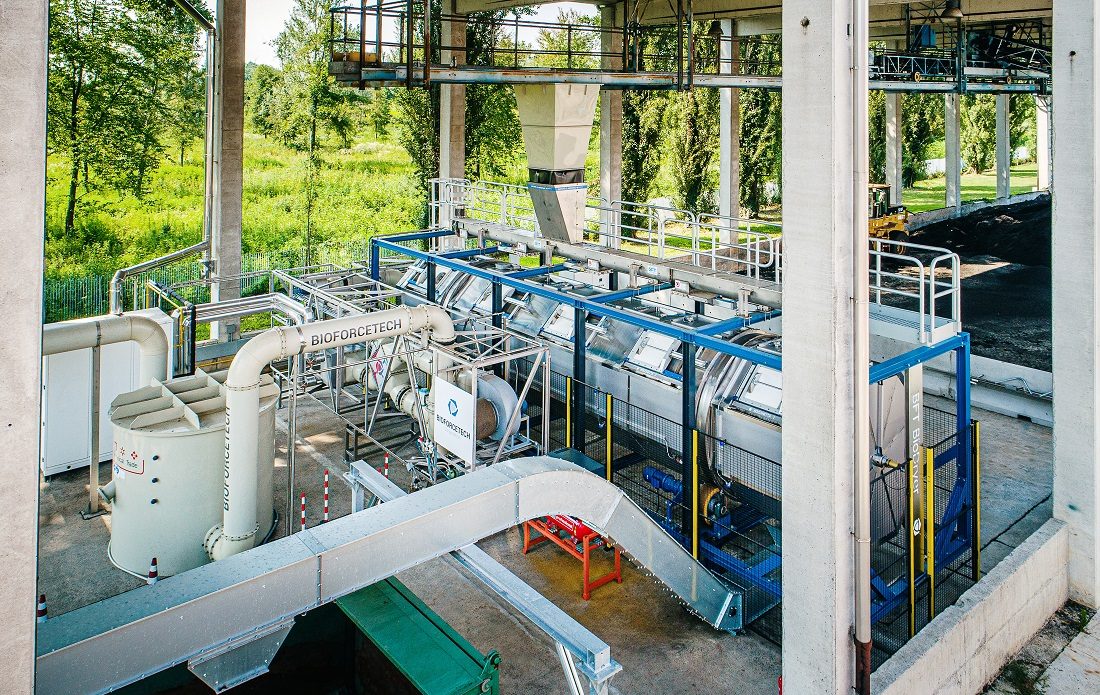
An innovative system to sustainably reduce treatment sludge volumes by 70%. This is the most recent achievement of CAP Group at its treatment plant in Robecco sul Naviglio. The Group was the first in Europe to install a modern and technological biodrying system of the sludge produced by the treatment cycle. The system was designed by a team of young Italian engineers.
Treatment sludge is one of the major issues at the heart of the sustainable management of the integrated water system: on the one hand, it is an important resource in terms of circular economy because it is an extraction source of materials such as cellulose, biogas and biomethane, eco-fertilisers, phosphorus and nitrogen, to be reused in highly advanced industrial sectors and in agriculture; but on the other hand, it is a huge cost in terms of disposal, which is mostly earmarked for landfills and often also abroad.
To reverse this trend, in January 2020 CAP Group launched an experimental process patented by a Californian start-up, Bioforcetech Corporation, created by a team of young Italian engineers. Biodrying treatment sludge is a project in line with the objectives set out in the CAP Group Sustainability Plan, which aims to recover as much energy and materials to be reconverted from production activities as possible, and to reduce the volume of sludge by 87% by 2033.
Unlike a traditional dryer, the biodryer does not use external heat sources except in the initial start-up and final drying phase, instead exploiting the natural heating process triggered by the bacterial biomass present in the sludge. The heat produced by bacterial fermentation evaporates the water contained in the sludge, reducing the volume by up to 70%.
With a 500,000 euro investment used to start an initial experimentation phase with the use of a biodrying module, up to 1,000 tons/year of dehydrated sludge from the sewage treatment line were treated. After the positive results of the first months, the design for the next phase is already underway, which involves the expansion of the plant to seven modules. The modules will be able to treat all 7,000 tons of dehydrated sludge produced by the Robecco treatment plant, reducing them to about 2,500 tons of bio-dried sludge in output. With a subsequent phase three, the treatment will be replicated in other plants managed by CAP Group.
